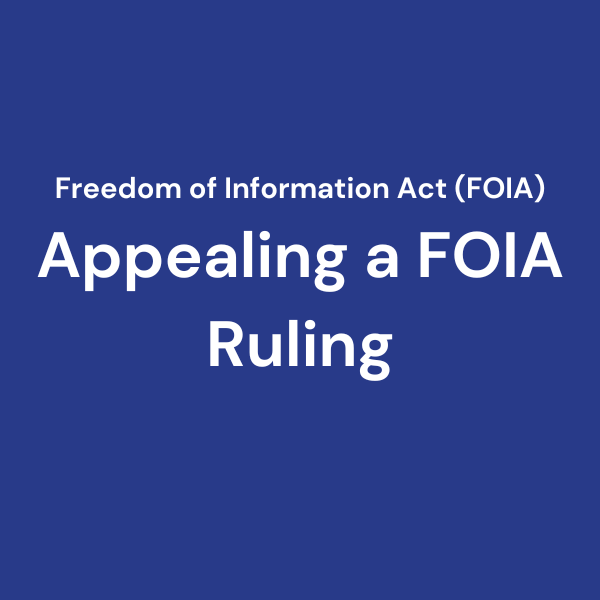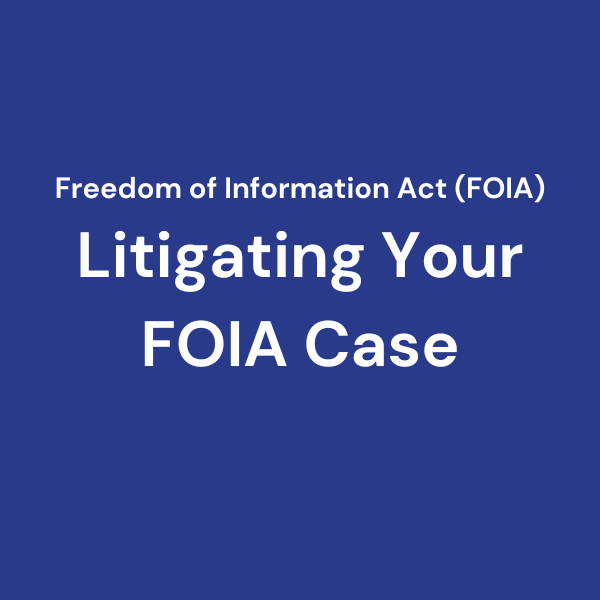we will do it together
FOIA Services for Journalists, Organizations, and Individuals
FOIA Requests for Government Records
About the Freedom of Information Act (FOIA)
Enacted in 1967, the Freedom of Information Act (FOIA) provides the public the right to request access to records from any federal agency. Basically, it’s the law that helps keep citizens “in-the-know” about the government and its activities. Federal agencies are required to disclose any information requested under the FOIA unless it falls under one of nine exemptions.
- Requestors can challenge outright denials of FOIA requests, inadequate searches for information, or improper redactions.
- The District of Columbia and the Washington Metropolitan Area Transit Authority have similar systems.
- At the Law Office of Deborah M. Golden, we can help you figure out the most efficient way to fight for the information you want.
Submitting FOIA Requests
How We
Can Help
Any person has the right to review government records. But sometimes the process of obtaining that information can be challenging. That’s why you should seek out the Law Office of Deborah M. Golden. We can help you draft your submission with the correct specifications to obtain the records you need. And should your submission be rejected, we can help you navigate the law, file an appeal, or help you litigate your case in Federal court. More details about some of the specific services we provide are below.

Submitting Your FOIA request
Anyone can submit a FOIA request to a government agency whether they hire an attorney or not. One reason to go with our team at the Law Office of Deborah M. Golden is that we will make sure to draft your submission with the correct specifications to obtain the records you need.
Most of all, we can also help you navigate what is more likely to be an exemption (where the government, by law, can keep such information private). And we can also help you save time by crafting targeted requests.
We can help anyone, but we specifically have the background to help freelance journalists who need access to records but may not have a larger institutions’ resources and legal departments. Contact us today.
Appealing A FOIA Denial
Your initial FOIA request may have been fully or partially denied by a government agency. If you so choose, you can elect to administratively appeal the decision. In some circumstances, this step is mandatory. Each government agency that you submit a FOIA request to may have slightly different requirements and timelines.
At the Law Office of Deborah M. Golden, we can help you navigate that administrative appeal process or figure out if you can bypass it altogether. Contact us today.


Litigating Your FOIA Case in Court
The Law Office of Deborah M. Golden can help you litigate partial or complete denials of your FOIA requests. Because the Freedom of Information Act requires the government to pay attorneys’ fees in successful lawsuits, you may not have to pay to bring your suit.
Litigation is always an option after an administrative appeal is denied, and you sometimes can skip the administrative process and go directly to court. The Law Office of Deborah M. Golden can advise you about your options and will bring their years of experience to helping you decide the best way to get the documents you want.
What People Say About Our Practice
Client Testimonials
plan of action
Contacting Us
When you work with the Law Office of Deborah M. Golden, you’ll get an attorney that’s committed to your success in obtaining the government records you need to complete your journalistic research. Here’s how we help in 3 quick steps.
01
Connect for a Free Consultation
You can take the opportunity to get to know our firm and we discuss the basics of your FOIA request or other document needs.
02
We Help Submit Requests and Gather Data
We’ll work with you to get exactly what you need in terms of records, reports, or documents from the government or other entities and stay on top of any appeals.
03
We Litigate
If your request has been denied, or your records have been overly-redacted, we can represent you in court.
Contact Us Now for a Free Consultation
We’ll discuss your legal needs and you can get to know us.
